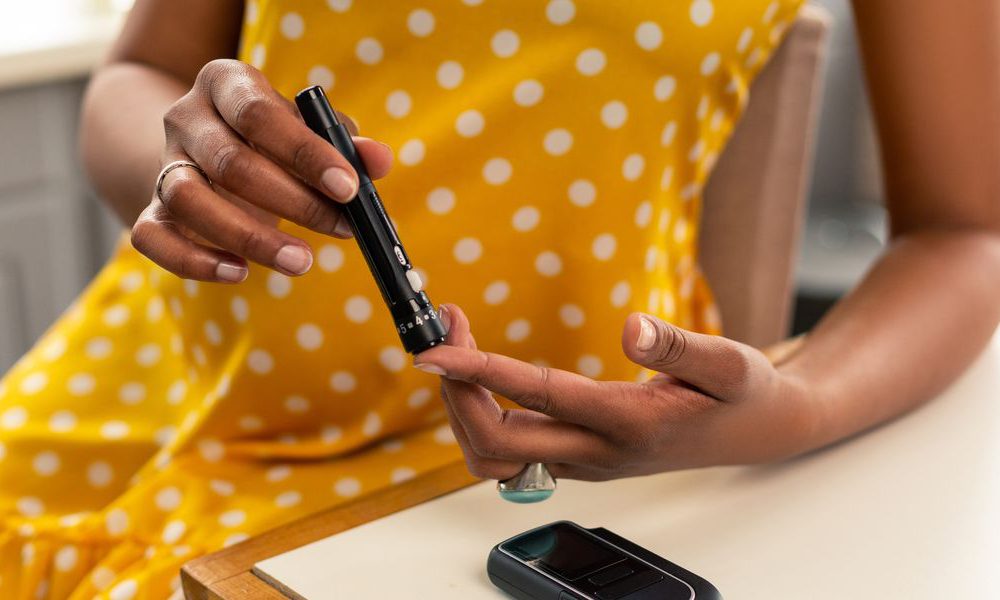
Gestational diabetes occurs in around 7% of all pregnancies, arises in the 24th or 28th week of pregnancy, and heals on its own as soon as the baby is born. But, untreated, gestational diabetes can cause many complications during and after pregnancy. If you have been diagnosed with it, go for gestational diabetes counseling with your healthcare provider or gynaecologist.
Table of Contents
Overview of Counseling During Gestational Diabetes
Gestational diabetes counseling is applicable for pregnant women with:
- Pre Existing type 1 or type 2 diabetes that is being controlled and treated
- Pre Existing type 2 diabetes diagnosed during pregnancy
- Gestational diabetes develops in the 24th week of pregnancy
When you have gestational diabetes, there’s a lot to learn. Proper counseling can help you establish ways to control dangerous blood sugar levels so that you and your unborn baby remain healthy.
Perfect gestational diabetes counseling involves discussing diagnosis and offering detailed education about diabetes and related pregnancy risks. You will receive a carefully customised diet plan and the details of the diet you must follow to control blood glucose levels. Also, learn about the significance of staying active during pregnancy.
One of the biggest parts of controlling diabetes is managing and monitoring blood glucose levels. You will get instructions on dangerous blood sugar levels during pregnancy and blood glucose monitoring which your counselor will check regularly.
Step 1: Knowing Everything in Detail
Step 1 of your gestational diabetes program is helping you learn more about the risk factors, symptoms, and associated ailments of gestational diabetes.
Gestational diabetes does not show any symptoms. Your risk factors and medical history may indicate to your healthcare provider that you could have the condition. However, you will have to take several tests to confirm this fact.
Gestational diabetes can also increase your chances of having high blood pressure during pregnancy and put your baby at risk of several complications, like:
- Being large, maybe more than 9 pounds,
- Requiring a C-section delivery
- Being premature leading to breathing and other complications
- Developing type 2 diabetes later in life
- Having low blood pressure
With gestational diabetes, your blood glucose levels will return to normal after delivery. But, you may risk developing type 2 diabetes, as 50% of women with gestational diabetes do. Not to worry; the right gestational diabetes counseling during and after pregnancy can be very effective.
Step 2: Diet for Gestational Diabetes
Snacking On a Little Harder
- Eat raisins, carrots, and fruits instead of sugary snacks, such as ice creams, candies, and cookies.
- Having smaller meals and two to three snacks daily to meet your increased nutritional requirements during pregnancy while keeping blood glucose levels low.
- Getting 20% of your regular calories from protein and 40% from carbohydrates. Opting for high-fibre, complex carbs with fat content between 25% and 40%.
- Having 20 to 35 grams of fibre every day. You can include foods like cereals, pasta, whole grain bread, oatmeal, wild or brown rice, and fruits and vegetables in your pregnancy diet to reach this level.
- Eating different foods to ensure you get sufficient minerals and vitamins.
Other Important Dietary Measures to Keep in Mind
Proper gestational diabetes counseling also includes other important dietary measures to manage the condition. These include:
- Having starch food at each meal. This can be anything from cooked rice or noodles to potatoes, grains, and bread.
- Milk is healthy food but limits it to one cup at a time.
- Fruits are also nutritious, but since they contain natural glucose, they have just a single serving daily.
- It is challenging to control blood glucose in the morning because that is when your pregnancy hormones are quite strong. Avoid milk, fruits, and dry cereals for breakfast as they are digested quickly and can cause blood glucose levels to rise rapidly. Opting for a breakfast of protein food, whole grains or sugar free biscuits is best.
- Strictly limiting sugary drinks and fruit juices that are high in natural glucose. Opt for diet drinks instead.
Step3: Staying Active during Pregnancy
You can exercise if you have gestational diabetes, provided your doctor instructs you. Working out throughout pregnancy can help your body become more insulin sensitive, further regulating blood glucose levels, improving your posture, and reducing complications like fatigue and backaches.
- Engage in half an hour of moderate exercise daily or five days a week. Swimming, cycling, walking, and jogging are the best options.
- Indulging in active leisure activities, like playing with kids and gardening, can also help.
- Try yoga, the poses specifically for pregnant women.
- Practice cardio exercises, including using an elliptical machine or stationary bike.
Step 4: Blood Glucose Monitoring
Experts recommend the following glucose level for women with gestational diabetes:
- Before meal: 95 mg/dL or less
- An hour after food consumption: 140 mg/dL or less
- Two hours after food: 120 mg/dL or less.
Your doctor will diagnose dangerous blood sugar levels if you have a minimum of any two of the following:
- Blood glucose on fasting equal to or more than 95 mg/dL or 105 mg/dL
- One-hour blood glucose level greater than or equal to 180 mg/dL or 190 mg/dL
- Blood glucose level after two hours of food greater than or equal to 155 mg/dL or 165 mg/dL
- Three-hour blood glucose level greater than or equal to 140 mg/dL or 145 mg/dL
With gestational diabetes, get your blood glucose tested every 6 to 12 weeks during pregnancy. Even if the condition heals after delivery, do not skip your doctor visits. Regular visits ensure blood glucose levels are right on target and you do not pose the risk of type 2 diabetes.
To Conclude
Preventing or managing gestational diabetes totally with gestational diabetes counseling is not possible. Nevertheless, maintaining a healthy weight before and after conception, having the proper pregnancy diet, and working out regularly can reduce your risk for the condition. Consult a doctor if you are worried that you might have gestational diabetes.





